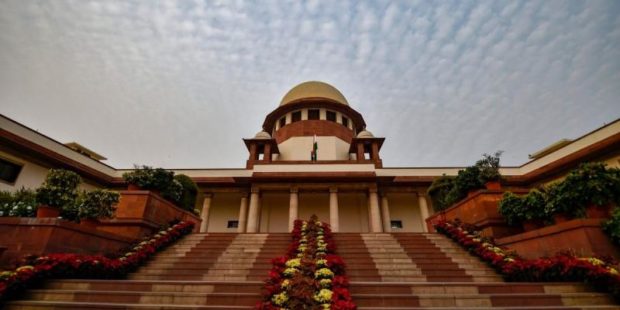

PTI, Sep 8, 2021, 1:28 PM IST

New Delhi: If a patient dies during surgery, it cannot be automatically assumed that the medical professional was negligent and there should be appropriate medical evidence to prove the same, the Supreme Court said on Tuesday.
A bench of Justices Hemant Gupta and A S Bopanna made the observation while setting aside an order of the National Consumer Disputes Redressal Commission (NCDRC) which held a doctor guilty of medical negligence.
“It is clear that in every case where the treatment is not successful or the patient dies during surgery, it cannot be automatically assumed that the medical professional was negligent.”
“To indicate negligence there should be material available on record or else appropriate medical evidence should be tendered. The negligence alleged should be so glaring, in which event the principle of res ipsa loquitur (a doctrine or rule of evidence in tort law that permits an inference or presumption that a defendant was negligent) could be made applicable and not based on perception,” the bench said.
The apex court was hearing an appeal challenging an order passed by the National Consumer Disputes Redressal Commission (NCDRC) which held the doctor guilty of medical negligence and has directed payment of Rs 17 lakh with interest at the rate of nine per cent per annum from the date of filing the complaint till the date of payment.
The top court noted that in the instant case, apart from the allegations made by the claimants before the NCDRC both in the complaint and in the affidavit filed in the proceedings, there is no other medical evidence tendered by the complainant to indicate negligence on the part of the doctors who, on their own behalf had explained their position relating to the medical process in their affidavit to explain there was no negligence.
As per the case, a patient visited the hospital on October 8, 1996 and was diagnosed with kidney stone in her right kidney and Hydronephrosis of Grade II in the left kidney.
She was advised to undergo surgery by the treating surgeon.
Accordingly, the patient admitted herself on December 6, 1996 and the doctor informed the patient as also her husband that both the kidneys could not be operated at the same time due to the severe damage and they were advised that as per the medical practice, the less affected kidney, that is the left kidney would be operated on in the beginning since complete removal of the right kidney cannot be ruled out.
Further the apex court noted that the doctor performed the surgery of the left kidney, which was a successful operation and as per the say on behalf of the hospital and the doctors, the condition of the patient improved by December 12, 1996 due to which the possibility of the second surgery to the right kidney was considered.
The necessary tests conducted by the anaesthetist, the physician and the surgeon resulted in clearing the patient for the second surgery, it added.
The second surgery was prepared to be conducted on December 16, 1996 and a standard procedure was also followed during the first surgery but on the present occasion the condition of the patient deteriorated, the blood pressure fell and pulse became feeble.
The cardiac respiratory arrest was noticed but despite the best efforts, the patient expired on December 23, 1996.
According to the appeal, an issue arose with regard to the payment of the balance medical bills and when the same was demanded the husband of the deceased, who was a union leader held a demonstration along with the workers at the hospital which resulted in a criminal complaint being filed against the hospital and also a magisterial enquiry was conducted.
The top court said that the patient underwent the same process of being administered anaesthesia for the first operation and the operation had been performed successfully.
The apex court said that though in the second operation, the patient had suffered a cardiac arrest, the subsequent processes had been conducted and the patient had also been moved to the CCU whereafter the subsequent efforts had failed.
“The patient had breathed her last after a few days. As already noted, there was no contrary medical evidence placed on record to establish that the situation had arisen due to the medical negligence on the part of the doctors,” the bench said.
The bench said there was no medical evidence available before the NCDRC on the crucial medical aspect.
Udayavani is now on Telegram. Click here to join our channel and stay updated with the latest news.





Kerala CM cautions people against soaring temperatures


Palghar man wanted for 2019 murder held from Chikmagalur after cops track e-commerce order


‘We were handcuffed’, claims deportee who arrived in second batch from US


‘They want to kill me, I am scared’: Ranveer Allahbadia opens up about death threats


New Delhi Railway Station stampede: Railway staff clear haunting remains


Champions Trophy: Arshdeep with more variations likely starter ahead of Harshit



Kerala CM cautions people against soaring temperatures


Devil teaser: Darshan promises ‘mass’ action!


Daali Dhananjaya ties the knot with Dhanyatha! Here’s what the newlyweds said


Siddaramaiah is our leader, no need to ‘misuse’ his name: Karnataka Deputy CM Shivakumar
You seem to have an Ad Blocker on.
To continue reading, please turn it off or whitelist Udayavani.